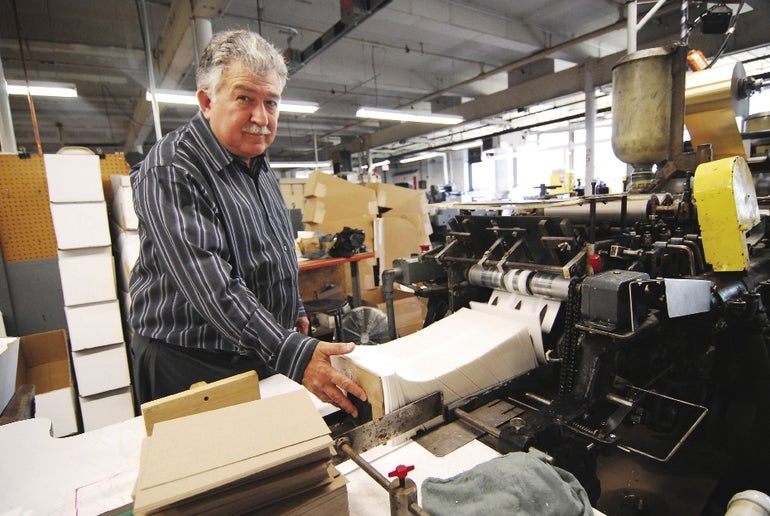Small Business Options For Financial Guidance, Lending
Small business is said to be the backbone of the American economy, employing about half of the nation's workforce and creating 65 percent of all new jobs between 1993 and 2009, according to the U.S. Small Business Administration (SBA).
But they can be risky enterprises, with about half of new businesses surviving just five years, and only one-quarter making it to the 15-year mark, according to the SBA. In light of those odds, banks are very careful about who they lend to.
Small-business lending remained fairly steady until the value of outstanding loans began to decrease in 2010. According to the SBA's Office of Advocacy in Washington, D.C., there were $606.9 billion in outstanding small business loans in 2011, down from $652.2 billion in 2010 — a nearly 7-percent decrease. Even more dramatic was the decrease in outstanding loans from 2008, when there were $711.5 billion in outstanding loans to small businesses. Compared to the pre-recession numbers of 2006, small business lending had fallen by about $28 billion in 2011. But by using resources at agencies such as the Massachusetts Small Business Development Center (SBDC), businesses are still coming up with the cash they need to expand and improve.
Michael DeCaro, owner of Classic Envelope in Douglas, is a prime example. He recently secured a $2.7-million loan through a federal program. DeCaro put 10 percent down, the bank financed the rest, and the SBA has backed it with a 40-percent guarantee.
With the money, DeCaro was able to move his letterhead- and envelope-manufacturing shop from a 90,000 square-foot space in Whitinsville to an old mill building in Douglas that, at 300,000 square feet, offered the space he needed for his growing business.
The process, according to DeCaro, was fairly easy. But after nearly 25 years in business, he knows how tricky getting a loan can be. After a loan deal went awry when he was starting out in the late 1980s, DeCaro said bankruptcy seemed inevitable. It took him four years to turn the business around.
"In 1992, we were in the black. So from 1988 to 1992, we bled," DeCaro said.
It's generally easier for an established business like Classic Envelope to secure lending for an expansion, but DeCaro said that as long as the right elements are there — including a sound business plan and adequate collateral — he believes even new business owners have a good shot at getting the money they need to make their ventures successful.
There's no shortage of agencies available to assist in the process. For example, DeCaro's mill building deal, which included a tax increment financing (TIF) arrangement with the Town of Douglas on top of the loan, was guided by the Worcester Business Development Corp. (WBDC) and the Blackstone Valley Chamber of Commerce (BVCC).
Jeannie Hebert, president of the BVCC, said a successful business owner may have a hard time getting a loan simply because he or she lacks the financial expertise required to create a winning application.
Learning Before Lending
In a time when small-business lending has become harder to come by, Hebert said the chamber has stepped up, offering classes at low prices to help get business owners "bank ready." Finance professionals also volunteer their time to advise future loan applicants, and a chamber representative may even meet with the bank to vouch for an applicant.
The BVCC is trying to launch its own "gap" lending program, which would provide smaller loans to business owners who aren't bank ready. The idea is to give them the financial boost they need so they have a better shot at landing a conventional loan, but chamber officials are still trying to generate funding to support it. In the meantime, the financial services the chamber offers give business owners a serious leg up, Hebert said. And though many lack the expertise to win a bank over, that doesn't mean lending to them is a losing proposition.
"I see them going to work at 6 a.m., I see them going home at 10 at night," Hebert said. "I know they're going to be working to keep this business alive."
John Rainey, regional director of the Massachusetts SBDC Network at Clark University, said both borrowers and lenders are more conservative in the present economy.
"In the last couple of years, business owners have become much more leery about borrowing money," Rainey said.
Finding A Way
But even in the recession, some small businesses in Central Massachusetts have found ways to grow. It turns out there are still banks and credit unions willing to lend to borrowers who have done their homework.
Rainey works closely with would-be borrowers at the SBDC, which provides counseling services to business owners at no charge. Each year, he and other advisors create about 125 financial packages — including business plans and financial projections — for borrowers to submit to banks with loan applications.
These documents are crucial to their success, Rainey said, and anyone seeking a loan should not go forward without them.
"You only get one first impression with the bank," he said.
According to Rainey, banks haven't changed their lending standards since the recession, but the deals are tougher to make because borrowers come to the table with less collateral. Homes, the most common form of collateral, have decreased in value by as much as 20 percent in some cases, Rainey said, so it's difficult to business owners to borrow as much as they need.
In addition to administering federal loan programs, the SBA provides similar financial counseling to support small businesses. Malise Sundstrom, public information officer for the agency's Boston office, also said many first-time loan applicants aren't familiar with the process, and don't know how to write a business plan. That's where the SBA steps in.
"Our whole goal is to get the bank to say 'yes'," Sundstrom said.
Offering loan programs that guarantee up to 90 percent of loan values is one way to entice lenders. And if it's a new business, the SBA will point business owners to banks that don't mind lending to start-ups, Sundstrom said. The organization also helps business owners secure microloans of $50,000 or less.
The Need For Advice
John J. O'Brien, senior vice president of lending at Leominster Credit Union, said more small business borrowers should take advantage of the financial counseling services available through agencies like the SBA.
"The newer businesses don't seek out enough external advice," O'Brien said.
According to O'Brien, banks and credit unions still have money to lend, but their appetite for risk has decreased in recent years. Still, when applicants meet the criteria — a sound business plan, healthy cash flow, good personal credit and some liquidity — the opportunity is there.
Last year, Leominster Credit Union loaned $6 million to local businesses —mostly for capital improvement and expansion projects, O'Brien said, and the majority were worth less than $250,000.
Commerce Bank of Worcester remained active in lending to the small business market throughout the economic downturn, according to bank president Brian W. Thompson.
Commerce, which issues loans ranging from $10,000 to $20 million, hasn't changed its lending practices, but Thompson said it's difficult for a newer business to get a loan without some sort of backing.
"If you know what you're doing, it goes a long way. Experience is a major ingredient," Thompson said.
Read more
Q&A with John Rainey, Small Business Development Center, Clark University
When You Need To Finance Your Business
Berkshire Bank Makes $1.6M Westborough Purchase
Hometown Bank To Open Auburn Branch
Lower-Income-Area Lending Deals Not Always Grabbed By Credit Unions















0 Comments